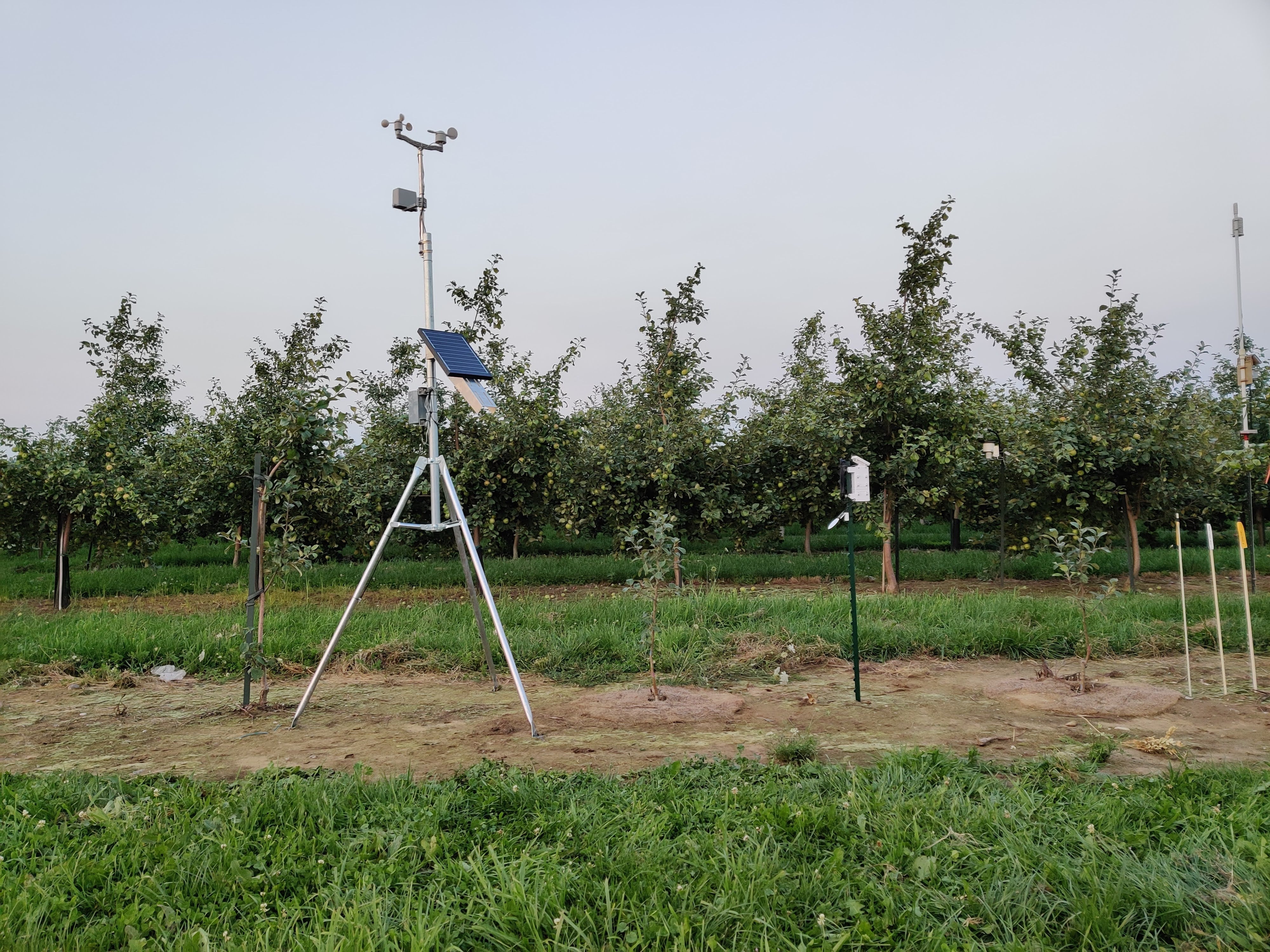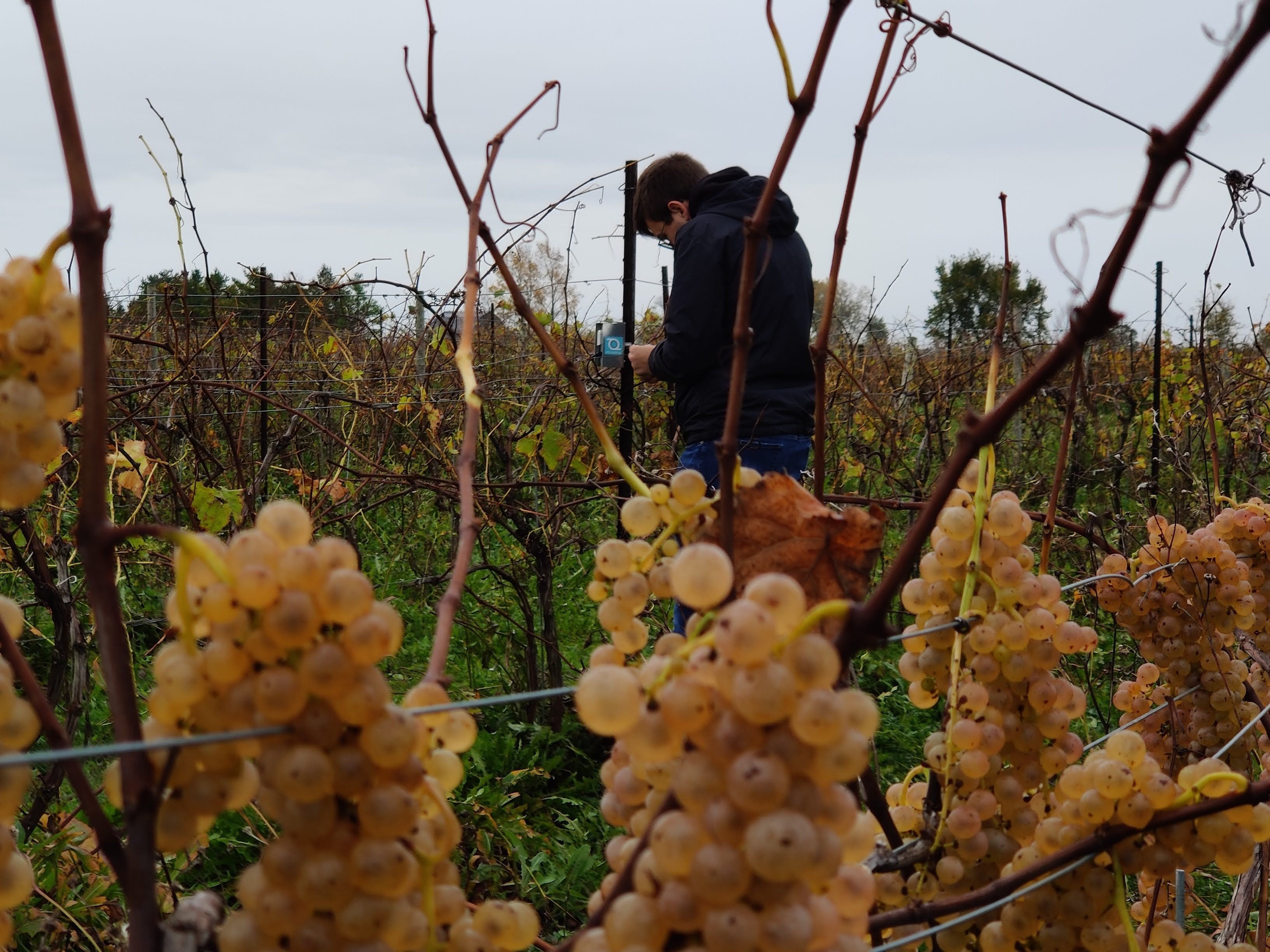
Using predictive models to support Niagara wine growers
Three graduating engineering students turn their Problem Pitch idea into budding startup

Three graduating engineering students turn their Problem Pitch idea into budding startup
By Michelle Benevides Concept by VelocityPests and diseases are one of the top issues facing farming today. Using pesticides is a major recurring expense but is necessary to maintain economically viable yields and healthy crops. Every year, 20 to 40 per cent of global crop yield is lost due to plant pests and disease. A loss that cost the global economy around $290 billion annually, according to the United Nations.
“Currently, farmers use blanket spraying over entire fields at predefined dates on a calendar. A typical vineyard will spend over $1,000 per acre of land annually on pesticide applications. Large farm operations often spend more than $1,000,000 per year on wasted pesticides,” says Jack Paduchowski (BASc ’22), co-founder and CEO of Maesos Technologies.
A Niagara Region native, growing up surrounded by vineyards, Paduchowski knows first-hand that over-spraying of pesticides is widespread practice in farming to protect crop from diseases that spread quickly and destroy yields. He explains that excessive application is reducing farm profit margins and is detrimental to human health and the environment. If that practice continues, in time pests and disease develop a resistance to pesticides which heightens the problem.
As undergraduate students at the University of Waterloo, Paduchowski and his co-founders Brandon Chan (BASc ’22) and Kurtis Eisler (BASc ’22), began passionately working on solutions to solve this problem and help farmers grow value-dense crop of wine grapes. They developed a solution that collects weather and fungal spore concentration data using custom sensor hardware. Using this data, farmers know when there are favourable conditions for the development of plant pests and disease, enabling farms to operate more efficiently and use fewer resources.

Paduchowski knew he wanted to support the future of agriculture and turn his sensor into a business. Through participating in Velocity’s Problem Pitch, the Maesos team were able to realize a niche advantage in the marketplace. The Problem Pitch got the team to fully explore the agricultural problem space and find a major issue being underserved from a technological perspective.
“It got us thinking in a unique sense about the problem, from looking at the magnitude, scale and importance of the problem itself. Through the course of doing research, we went out and did a lot more interviews with farmers and tried to keep it problem agnostic and let the problem reveal itself to us.”
The team is now operating three pilot projects over the 2022 season with Niagara wineries to test the efficacy of their predictive models. With a quantitative metric that can alert growers to fungal disease risk in their vineyards, they can optimize their fungicide spray timings and reduce usage when conditions are good. This limits economic loss and the overall guessing game for farmers and growing crop yields.

Velocity provides a whole ecosystem of entrepreneurial programs that helped Maesos develop several core competencies.
Concept Cornerstone provided a good foundation for the team through crash courses in topics including market research, product development, marketing and pricing. Maesos was able to network with other early-stage startups and receive mentorship from companies in the Velocity Incubator and Velocity alumni.
Finally, the Concept $5K grant competition honed Maesos’ pitching skills and the team walked away with funding to support their venture. The competition forces companies to relay the importance of the problem they are solving concisely and persuasively and convince an audience of the team’s ability to solve that respective problem.
Paduchowski remembers coming into his undergrad without prior business knowledge and praises Velocity programs for the invaluable guidance and teachings. For example, how important it was to leverage your networks and iterating through solutions, the often quoted "fail fast" strategy.
His advice for students that follow him is, “Don’t be afraid to fail. Don’t be afraid to talk to people that know more than you do. You’ll have some wonderful conversations that can inform decisions you’re making.”
Paduchowski, Chan and Eisler will be celebrating convocation this spring and look forward to their next chapter in growing their business. But it was their time at Waterloo and access to Velocity programming that brought the Maesos team together — connecting their shared entrepreneurial spirit and desire to pioneer advancements in agriculture.

Read more
Meet the ten inspiring individuals representing Waterloo’s newest grads

Read more
Winner of Concept’s $5K grant competition introduces a hands-free and non-invasive device to help doctors get real-time imaging of the heart in ICUs

Read more
Waterloo recognizes six PhD students for earning the highest academic status within their faculty and their innovative research
The University of Waterloo acknowledges that much of our work takes place on the traditional territory of the Neutral, Anishinaabeg, and Haudenosaunee peoples. Our main campus is situated on the Haldimand Tract, the land granted to the Six Nations that includes six miles on each side of the Grand River. Our active work toward reconciliation takes place across our campuses through research, learning, teaching, and community building, and is co-ordinated within the Office of Indigenous Relations.